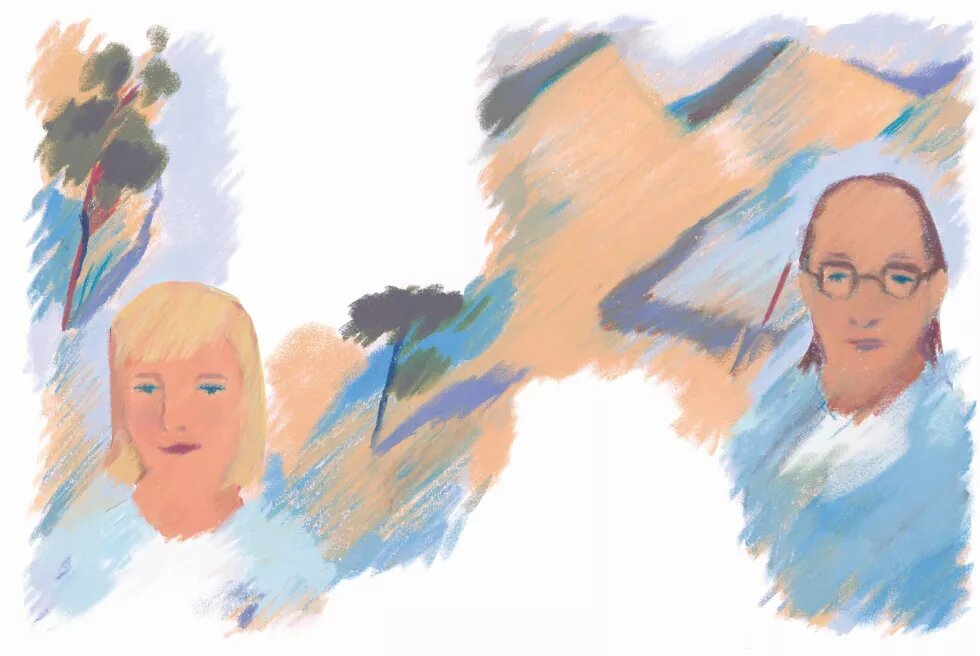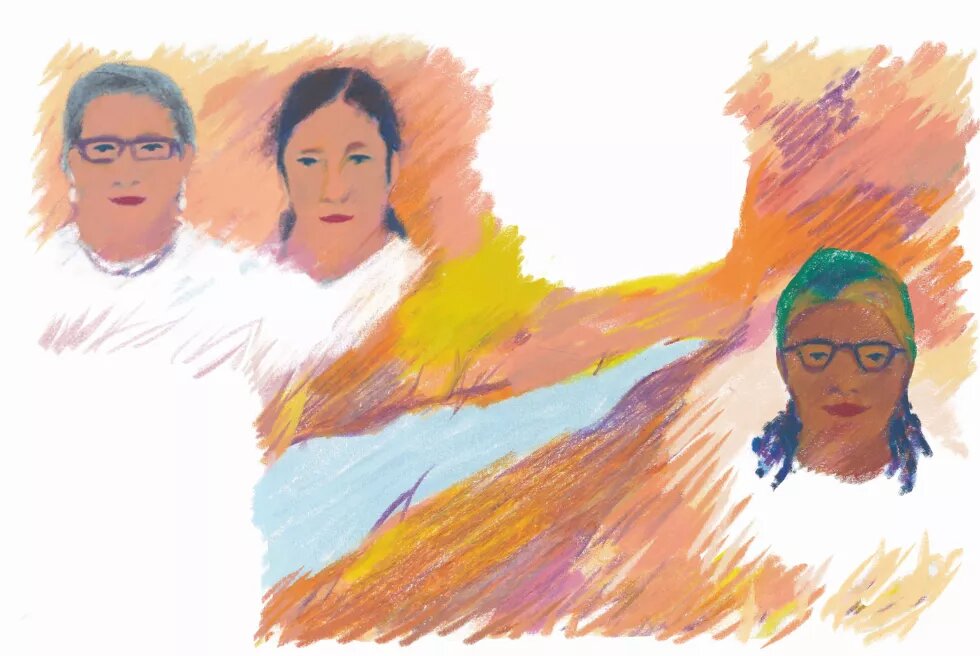«We want to be able to live with dignity in our ancestral lands.»
Fabiola Vargas, Environmental Engineer, Cochabamba, Bolivia
I work for the Centro de Comunicación y Desarrollo Andino (CENDA), a Bolivian NGO that helps indigenous farming communities to live in dignified conditions in their ancestral lands. The Bolivian government cares little about the about the rights of the people here; instead, it supports the interests of the mining sector. In the Poopó district, for example, the disposal of mining waste is monitored very poorly. Rivers that were once used for drinking water and irrigation are poisoned with heavy metals. About fifty families are affected in that area alone. They can no longer grow food, and their animals become ill or are born with deformities. Water has to be brought in over long distances, and many people eventually abandon their land and move to the city. We need for more people to organize - so that we will finally be heard. Mail to CENDA.
«We show our pain, but also our successes.»
Geuza da Cunha Morgado, activist, Marabá, Brazil
I work for the Pastoral Land Commission (CPT) in Marabá, in the Brazilian state of Pará. We support rural people, women in particular, who suffer as a result of the largest iron ore mining operation in the world, which is run by VALE S.A. We challenge the grand narrative that mining brings development and progress for families and communities – especially as far as women, the elderly and children are concerned. In reality, many of us are being forced out of our region for the sake of the interests of large corporations. Mining changes the local economy; we women lose our land, our place to grow food and medicinal plants. The lucrative jobs go to men; profits and wealth are concentrated in the hands of powerful corporations. We encourage women to show their pain, but also their successes. We remind them that they have rights. This gives me great joy. Mail to CPT.
«There was so much that I did not know for the longest time.»
Hannah Pilgrim, social scientist and human geographer, Berlin, Germany
Did you know that Germany is one of the largest consumers of metallic raw materials such as iron, copper or aluminum? Did you know that the mined metallic raw materials we use are almost entirely imported? Did you know that mining in particular often tramples the rights of local communities and nature in many ways? I was not aware of any of this for a long time. When it comes to metals, German politics has mainly supported the interests of the industry for many years. Since 2020, I have been active in the AK Rohstoffe network, the raw materials working group at PowerShift, which was founded ten years ago by environmentalists and human rights activists. We are fighting for a raw materials transition: a reduction of the excessively high metal consumption in Germany and the European Union, the rapid implementation of closed and reduced material cycles and the protection of people along metallic raw materials supply chains. Mail to Hannah Pilgrim.
«Our career choice determines our carbon footprint.»
Heinrich Jung, master electrician, Ingelheim, Germany
I live in Ingelheim. Forty years ago I founded my company Blitzblume («lightning flower» – with the lightning bolt in the logo standing for the electrical profession and the flower for ecology). Founding this company was my response to the simple question: What can I, in my capacity as a master electrician, do to protect the environment? I repair consumer goods, which allows us to use valuable resources much longer. The manufacturing industry does not do that, ever. The companies just want to sell more products. As an individual, you have a number of options to promote sustainability: through your choices as a consumer, by voting and by getting involved in initiatives. We can ask ourselves: What carbon footprint do I have or will I leave behind? And one personal decision is of particular importance for your impact on the future of our planet: your choice of career. Your work can have a real impact or benefit – and our professional life covers a very long time! Mail to Heinrich Jung.
«Despite the opposition, we have achieved important gains.»
Beatriz Olivera, director of ENGENERA A.C., and Dolores Rojas, Heinrich Böll Foundation, Mexico City, Mexico
Our initiative ¡Cambiémoslaya! («Let’s change it now!») unites NGOs, communities and academics. We want to obtain a reform of the 1992 Mexican Mining Act, which has favored economic and extractive interests for the past thirty years. To this purpose, we have prepared studies, organized discussion events and raised awareness among decision-makers in the Mexican congress. Despite the opposition from business and politics, we have already achieved quite a bit. Mining licenses are now to be issued subject to stricter conditions, social-ecological concerns must be taken into account, and environmental and social impact studies must be prepared. Indigenous communities have been granted the right to be consulted, and no mining may be permitted in nature reserves. In addition, companies are now obligated to prepare mine rehabilitation, closure and post-closure plans. There is still a long way to go towards social-ecological transformation in our country, but our successes are an important first step. Mail to Beatrix Olivera. Mail to Dolores Rojas.
«No decisions about women without us women!»
Khosi Nomnqa, feminist and activist, Johannesburg, South Africa
I have been a member of WAMUA/MACUA (Women Affected by Mining United in Action / Mining Affected Communities United in Action) since 2015. Women bear the brunt of the negative impacts of the mining industry in Africa. They have little chance of finding work in mining and yet bear the costs and effort of the care work that water and air pollution causes. Female smallholders lose their land to mining projects and are sexually harassed and abused. Women should have the right to inherit land, and they should be involved in decisions that affect their lives. The people in the Global North who benefit from mining in South Africa could be important allies. They could call on their governments to prevent companies from engaging in serious human rights abuses, particularly those that affect women. Mail to MACUA.
Illustrations: Georgette Smith


